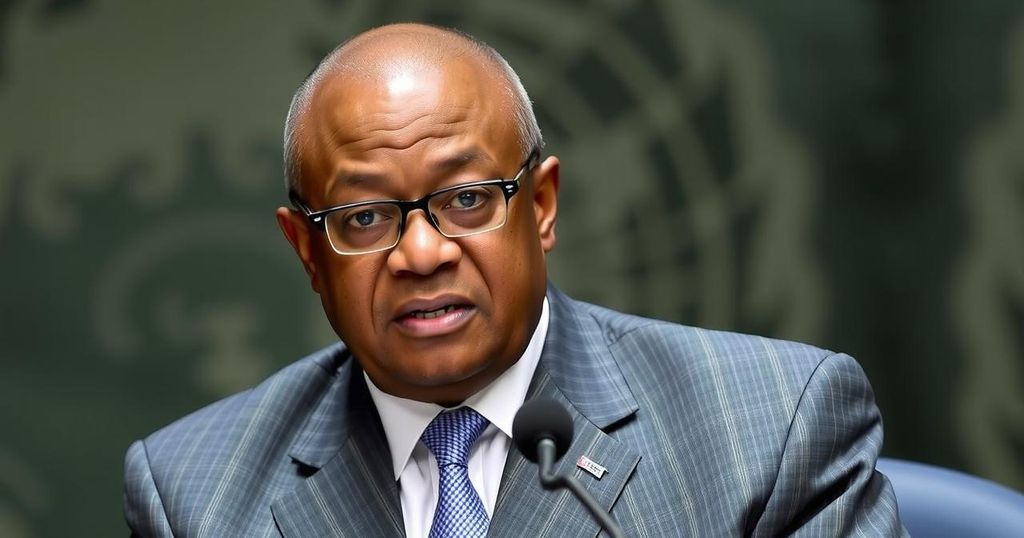The Democratic Republic of Congo commenced its campaign for a non-permanent seat on the UN Security Council for 2026-2027, emphasizing its role in international peacekeeping and conflict resolution. The DRC has previously held this position and seeks to leverage its experience to influence global peacekeeping reforms. Elections will occur in June 2025, and the DRC anticipates contributing to meaningful discussions on peacebuilding and security.
On Wednesday, the Democratic Republic of Congo (DRC) officially initiated its campaign for a non-permanent seat on the United Nations Security Council (UNSC) for the term 2026-2027 during a ceremony in Kinshasa. The UNSC, recognized as the most influential body within the United Nations, is responsible for upholding international peace and security and has the authority to render legally binding decisions, authorize military interventions, and impose sanctions against nations.
The United Nations Security Council consists of five permanent members—China, France, Russia, Britain, and the United States—and ten non-permanent members who serve two-year terms elected by the General Assembly. The DRC has previously held non-permanent membership on two occasions: from 1982-1983 and 1991-1992 during the Gulf War. Notably, the DRC was instrumental in denouncing Iraq’s aggression during the Kuwait invasion. Furthermore, the DRC is host to a significant United Nations peacekeeping mission, comprising 15,000 blue helmet personnel, indicating its pivotal role in international peacekeeping efforts.
The DRC’s campaign for a non-permanent seat on the UNSC highlights the country’s ambition to extend its influence in discussing peacekeeping and reforming the UN’s collective security structure. Given its extensive experience in conflict resolution due to the ongoing turmoil in its mineral-rich eastern region, the DRC aims to contribute effectively to the global discourse on preventing warfare and mitigating international tensions.
Original Source: www.barrons.com







